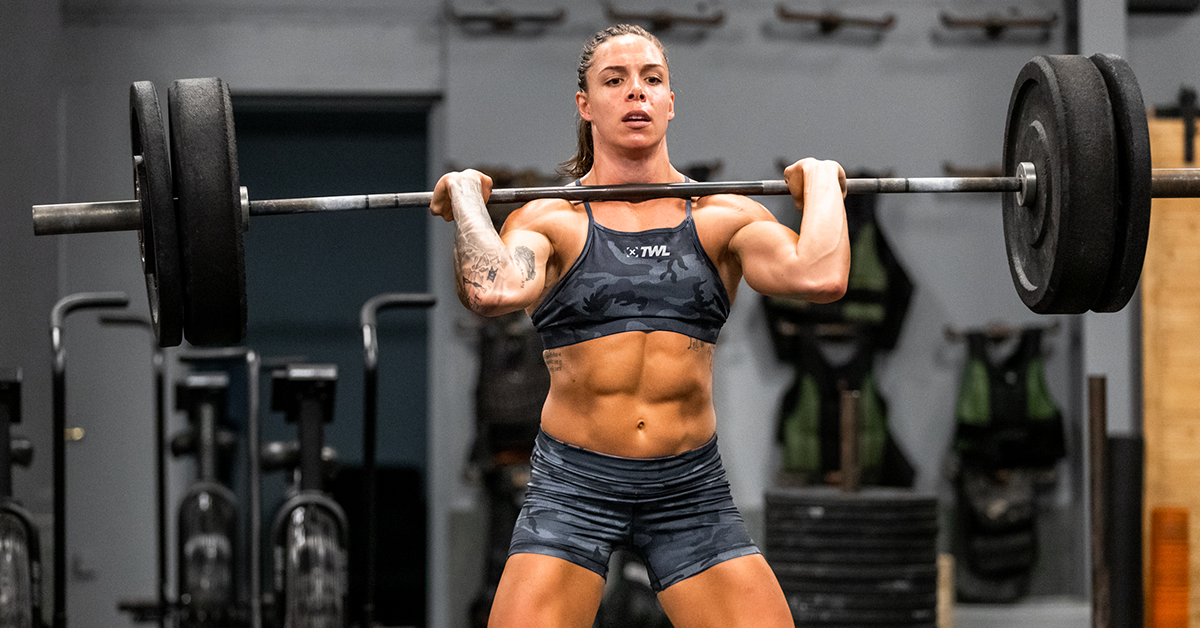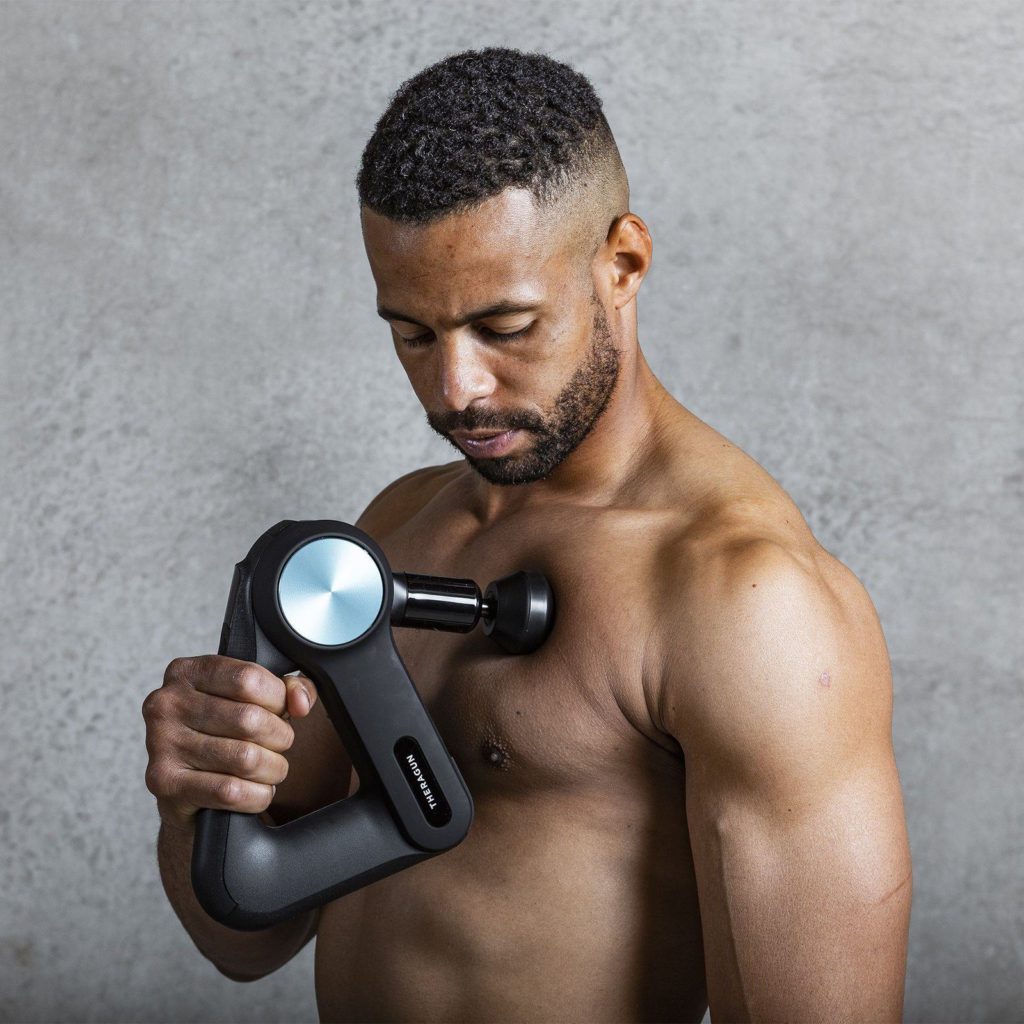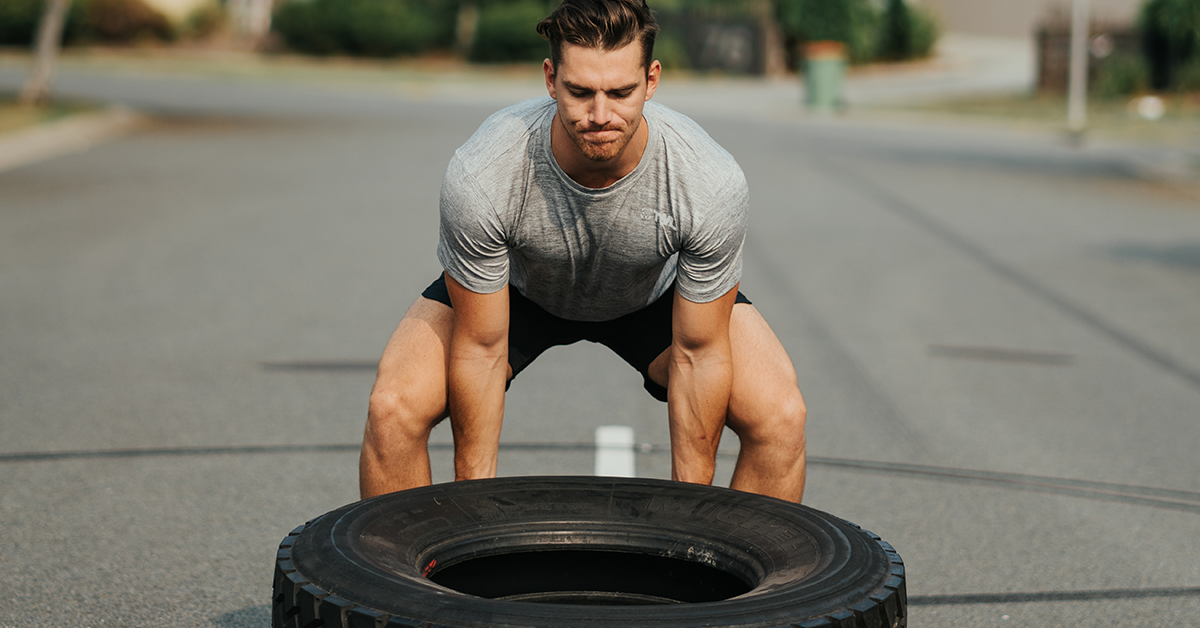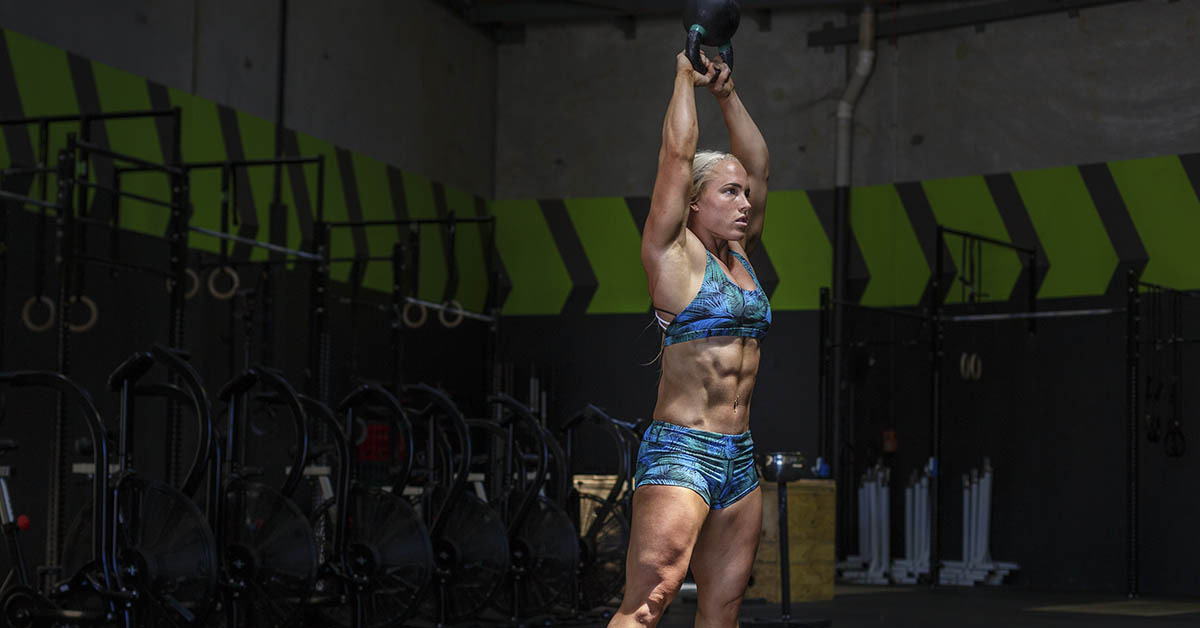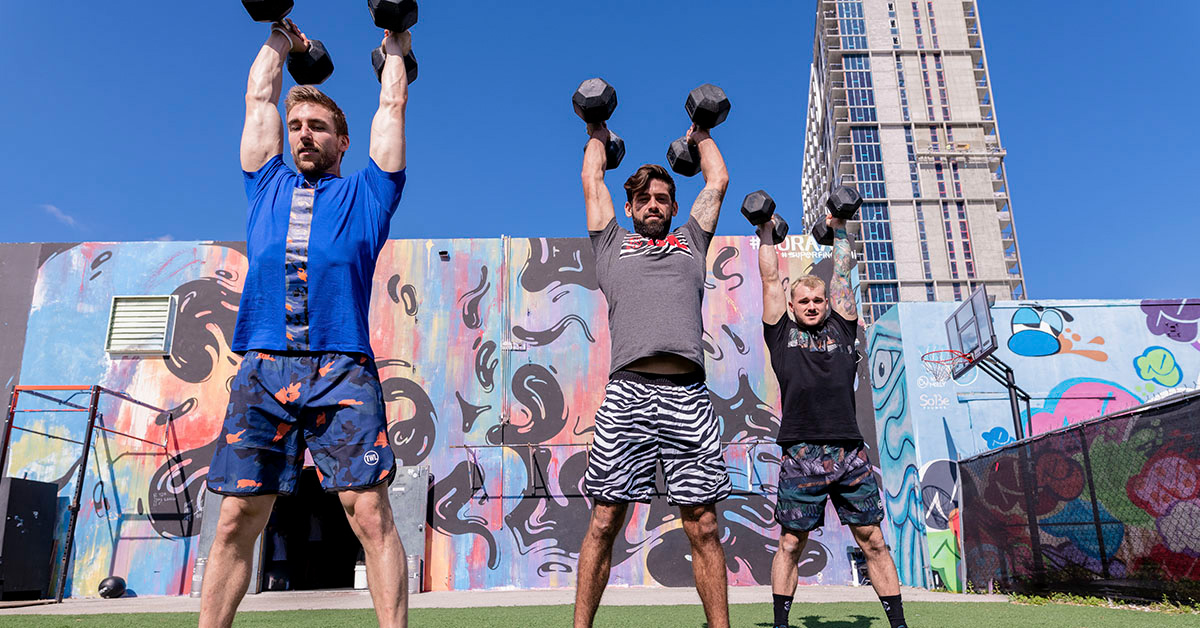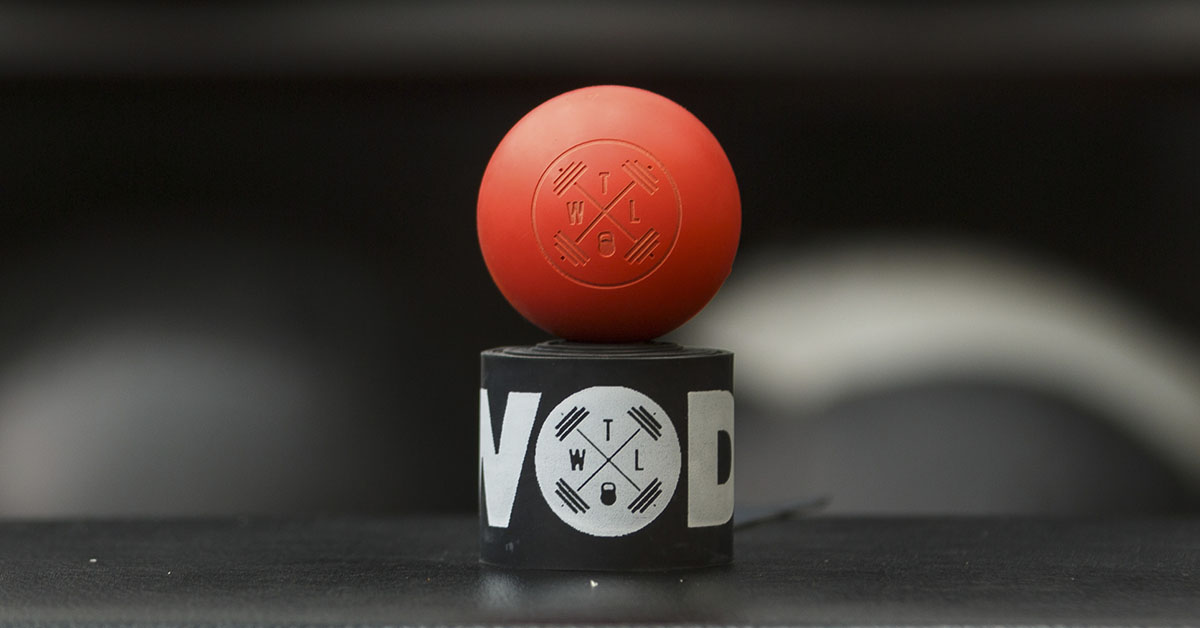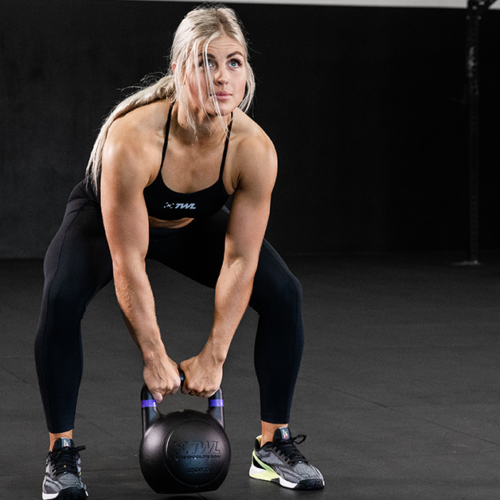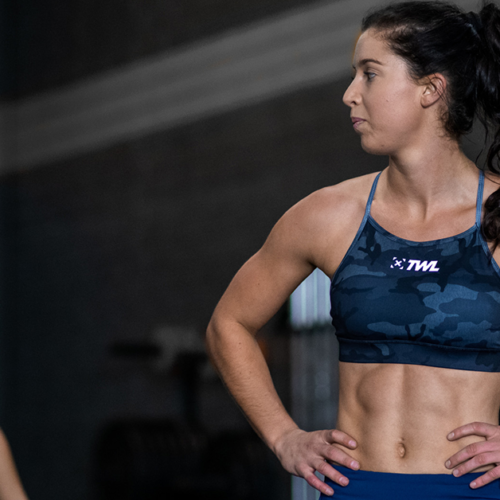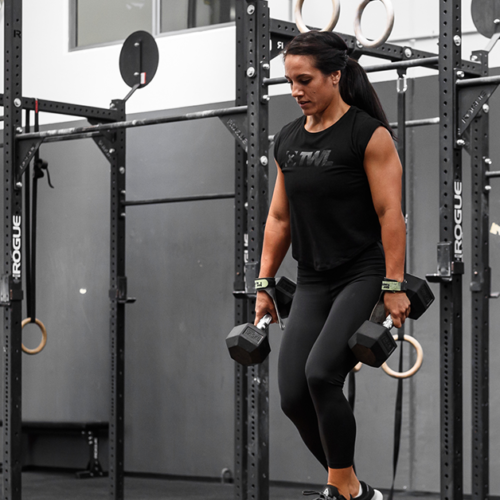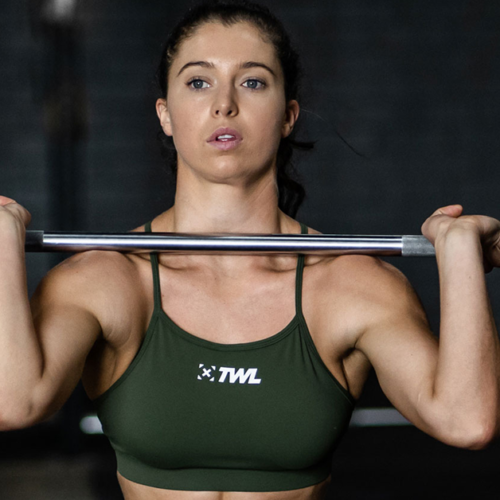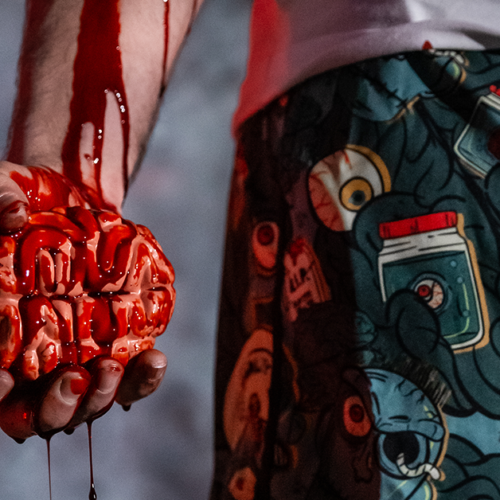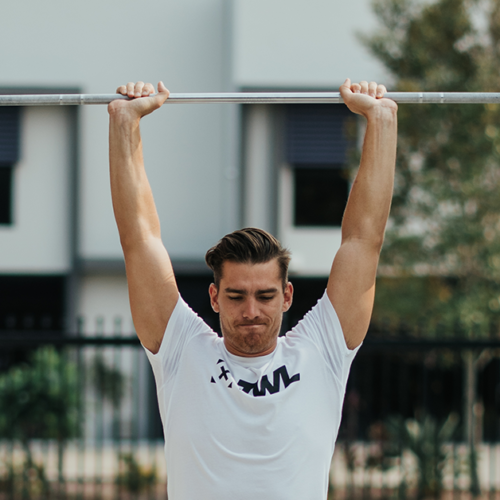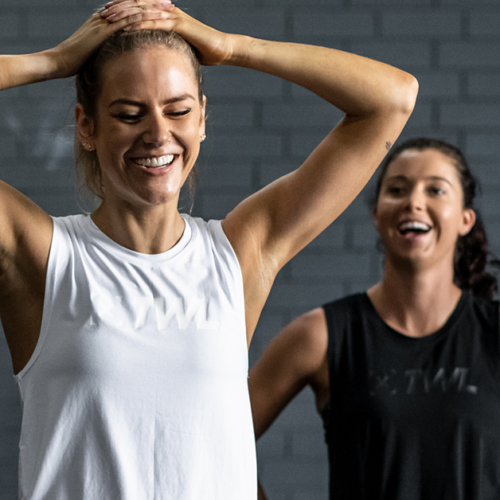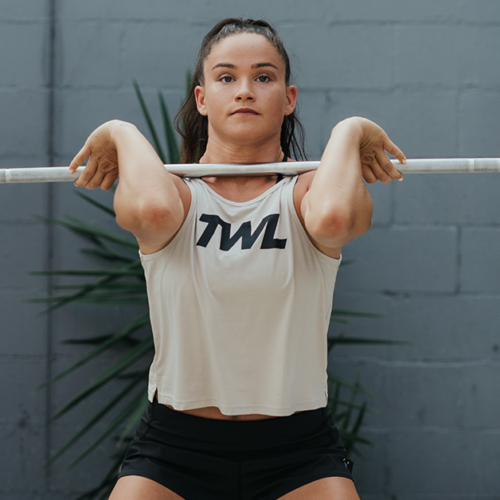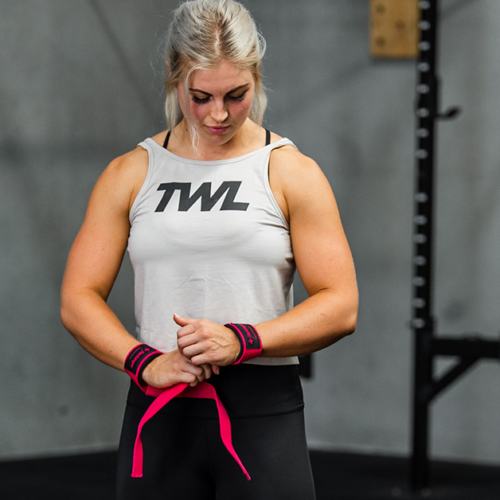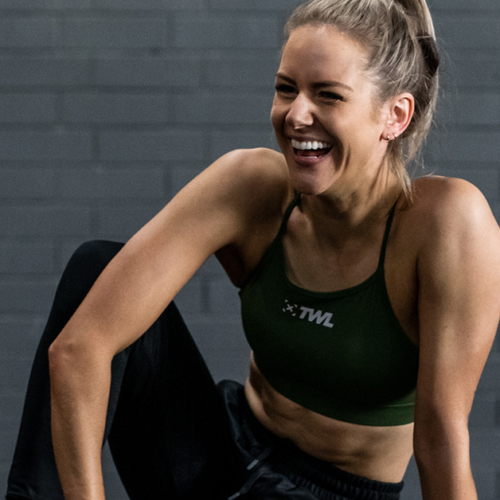You know that post-WOD feeling, usually the next day, when your muscles are aching? “It’ll be gone tomorrow,” you say, except that the following day, it’s actually worse. Why do muscles get sore, anyway? Let’s talk about what’s happening in your body.
Psst! We’re dropping some of our favorite recovery tools below.
Shop Now
Why Do Muscle Get Sore After a Tough WOD?
You might already know that when you challenge your muscles — perhaps by lifting heavier weights, lifting for more reps, or doing something that your body simply isn’t used to — it causes microscopic tears in the muscle fibers. Eventually, your body goes into recovery mode to help these little tears heal. In that process, it might increase inflammation, and this is what’s causing that soreness.
This is what athletes are referring to when they use the word “DOMS”: delayed onset muscle soreness. Your muscles aren’t sore immediately after a workout. You usually feel it the next morning. And commonly, the second day is actually worse, after which point the soreness finally starts to ease up.
So, Muscle Soreness is Normal?
Totally! This is part of your body’s natural healing process. And, excitingly, those tiny tears (after they’ve healed) are ultimately what cause your muscles to grow and get stronger. Neat!
Now, if you experience soreness so intense that it severely impacts your ability to do your day-to-day tasks, this should get your attention. For example, if you’re literally unable to walk, that shouldn’t be happening. Or, if you experience soreness for extended periods of time, this is something to address.
For more help with this, read our blog on soreness vs. injury and learn to tell the difference between the two.
How Can You Speed Up Your Recovery?
Great question! Sure, muscle soreness is normal, but there are also things you can do to recover faster.
Stretching and mobilizing are key. Not only will these help you combat soreness, but they’ll keep your joints and tissues healthy, preventing injury. Read our blog on the importance of mobility in preventing injury.
Spending some time on a foam roller is also a smart idea. Other tools that you might find helpful include lacrosse/trigger point balls, muscle roller sticks, and devices like Theragun, which make an excellent addition to your recovery routine.
Keep in mind that your muscles don’t grow during training. They grow during recovery. Thus, having dedicated time to help your body heal is crucial to your overall health and fitness gains. It’s not time wasted; it’s actually crucial to your progress.
Ready to up your recovery game but not sure where to go next? The WOD Life has everything you need to rest and recharge in between training sessions. Shop our selection of recovery tools today!

